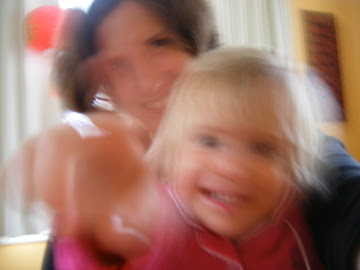I must admit, I have a little bit of a literary crush on Michael Pollan - that wry voice, the honesty, his eyes (well, not
totally literary) ... and mainly the ways he pulls everyday life apart and puts it back together again.
The Omnivore's Dilemma was a staunch and intelligent book, but I've enjoyed
In Defense of Food a little more. It's looser, less confronting - more of a chat than a charming lecture. Pollan's argument is that we have lost sight of food, focusing instead on its discrete elements as they are defined (and misunderstood) by scientists and nutritionists; in uncovering the mysteries of food, science has mystified our eating. Under the sway of nutritionism we rely on labels and experts, unable to trust our nose, our taste or our bellies. It's a broad brushstroke kind of an argument, and I do feel it lacks nuance and in particular doesn't adequately acknowledge key structures like class, gender, and movements like slow food and organics (which are also classed and gendered), but I think nutritionism, with its intended and unintended consequences, is one of the defining characteristics of contemporary, Western food culture. Underpinning Pollan's solutions is the reclamation of our traditional food cultures.
So I'm thinking about my own food cultures, and what Al and I are passing on to our kids. Food-wise, we don't come from sophisticated stock. The German side of my family has given me a real love for sauerkraut, wurst and obst-torte. The Irish has been lost - my grandmother was a 1950s hostess with the mostest, all devils on horseback and cream of mushroom soup. In our own childhoods, neither Al nor I knew asparagus, mushrooms or beetroot could be had fresh (aah, the tinned champignon). I have no memory of ever ingesting a vegetable as a child. And yet we've both emerged relatively bonny and eating widely and well; indeed, we both love food. I don't know how this happened to Al (he was allowed to e
at as much ice cream as he wanted, for heaven's sake) but - and this will surprise my long-suffering mother, who for years has put up with our 'jokes' about her cooking - I attribute my own excellent eating habits to my parents.
Food as fuel is important, of course, but culture comes from the meanings and practices attached to what we eat and in this, my parents excelled. It's the fodder for dinner party humour now (fodder - food; geddit?) but the
food rules and practices I remember gave us a sense that food was something to be shared. It wasn't mysterious and it wasn't external to our family; it was part of the common everyday. We didn't pick this up as kids, and my parents might not have deliberately created that message (Mum, Dad, comments?) but that is what I've taken from my own family's food culture, and it's what I'm now giving the girls.
I still
worry about the lack of cosmopolitan fare (although not as much as I did a year ago) but here's the thing: my kids like to cook, they know that food is eaten at the table, together (albeit often sullenly, reluctantly, whiningly), and they know where food comes from and how to make it. Food's not mysterious, it's not good or bad, and it's defined by taste and colour, not lists on a packet. When I grit my teeth as the girls break the shell in with the egg when they help me make a cake, when I pull on the gumboots and step through the dusk and drizzle to grab some greens, when we sit down together at the table, when I take a moment to be truly thankful for what I have received, we are showing the girls that some of our most precious knowledge lies in the mundane.
This is what I tell myself to steel my nerves as the girls yet again sniff the smells in the kitchen and declare them to be delicious, look at the food and declare it to be delicious, and then eat two grains of rice and a pea.














